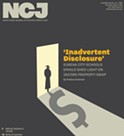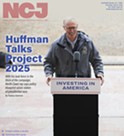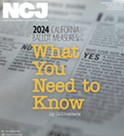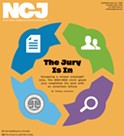[
{
"name": "Top Stories Video Pair",
"insertPoint": "7",
"component": "17087298",
"parentWrapperClass": "fdn-ads-inline-content-block",
"requiredCountToDisplay": "1"
}
]
In my fantasy dinner parties, Lost Coast Outpost Editor Hank Sims is a frequent guest. I am socially reluctant so I don't host actual dinner parties. I invite him because he says thought-provoking, conversation-stimulating things.
If you didn't tune in June 14 to KHSU's Thursday Night Talk you should stream the podcast. As part of her new Race Beat, Lorna Bryant focused on online comments. The on-air discussion was with Sims, along with KHSU's new director Peter Fretwell, North Coast Journal News Editor Thadeus Greenson, HSU Native American Studies professor Cutcha Risling Baldy and Donn Peterson of the local chapter of the NAACP. For the record, Bryant and Greenson were both my students. Bryant also serves with me on the board of the Humboldt Center for Constitutional Rights. Sims has taught in my department at Humboldt State and first recruited me for this column. I only met Fretwell once. I have never met Cutcha but she now also comes to my fantasy dinner parties.
In real life, people like Sims and Cutcha don't know they come my parties. They stay inside my pea brain as does 99.9 percent of my thoughts. Of the 0.1 percent that sneaks out, I regret saying another 90 percent. I rarely tweet and I don't participate in online comments. I wish more people were as social-media reluctant.
Back to Bryant's show, which was spurred by a letter from the NAACP to local media calling for restraints on online comments. The NAACP was concerned — in the wake of the murder of HSU student Josiah Lawson — about the racial vitriol spewed by anonymous commenters on the Outpost's and Journal's websites. In describing the Outpost's comment section, Sims said this: "It is a place where people sort of vent their id."
Hearing this, I said "Yes! Exactly!" That's the crux of the whole damn problem. We aren't supposed to vent our id. Basic Freudian psychology says that our id is our unfiltered instincts and we have the Superego to keep that in check. The id is where we house our nasty.
There is a great scene in the great Spike Lee movie, Do the Right Thing, where Spike creates a montage of people of various ethnicities and cultural and religious backgrounds in one Brooklyn neighborhood who each spew racial remarks against each other. It was a recognition that we all have racist or sexist or homophobic or misogynistic or creepy, lecherous thoughts in our heads.
In the safety of our imagination, we murder or sexually fantasize about each other. In my fantasy world, I am such a mean person it is amazing I have enough friends to invite to my parties.
Online anonymity allows people to barf to the world thoughts that civility dictates should stay in their heads. I don't subscribe to the notion that if you have nothing nice to say you should say nothing. But I do believe that you should not say something about someone if you would not say it to their face.
Sims argues that maybe it is better to know how much hatred is out there. When Bryant said the experiences that she and Cutcha, as people of color, have different experiences than do Greenson and Sims, who are white. Sims said: "The reason I don't doubt that your experience and Cutcha's experience is different is because I see it written out day after day. And I wonder if it is not good to document that."
That's where we disagree. I don't think it is good. There are two fantasy worlds out there. There is the world in which I am extremely popular and host the most fascinating parties in all of Humboldt County. And then there is the fantasy world where I am a really, really mean person. They co-exist. It serves no one any good to know I have pretend murdered them. The world functions because the vast number of us who think about picking up a weapon don't actually do that. And it serves no one to know that these thoughts, which will not be acted on, exist.
Supporters of online anonymity fail to understand that the First Amendment protection of free speech is intended to protect minority speech, not the majority opinion. The majority already has a protected forum. It's the safety that comes with numbers. If you don't protect speech, you end up with an out of control mob mentality. We are seeing this online with internet crowd-shaming.
Harvard scholar Cass Sunstein wrote about two frightening dynamics. People will censor themselves when their information disagrees with the crowd. And when like-minded people converse, their positions get more extreme. Put those two together and it could seem that there are more extremists than actually exist. People end up saying stuff that might represent only part of who they actually are. They show the ugly part of themselves that is in a lot of us.
We live in a community that is 80 percent white. That's an intimidating crowd if you are in the 20 percent composed of blacks, Latinos, Native Americans, Asians and any mix of ethnicities. The mob of online commenters who scream out stuff in the comfort of their crowd size can intimidate people into silence who are outside the crowd.
In its letter to local media, the NAACP called for three things: Outright removal of public commentary altogether; or strict monitoring or vetting of posts before they are viewed publicly; or the option to post only if the identity of the poster has been confirmed through a process.
Bigger, national publications are reforming the way they handle comments. Huffington Post has been taking comments to articles only through Facebook. The New York Times is moving toward an algorithm-based robot moderator. At the North Coast Journal, human beings go through the comments and pull out hate speech. At the Outpost, there are different forums for anonymous comments and all comments go through a word filter that filters out some racist comments. Also, commenters are allowed to flag each other for offensiveness.
I propose this: How about if you give people only one chance per article to comment? They can speak their mind once. But they can't then reply to someone else's comment. You won't have a thread disintegrate into a moronic back and forth. It might get people to take an extra second to compose their thought if they knew they only had one chance. Many newspapers have a letters to the editor policy that limits the number of times any one person can get published. This opens up space for more opinions. If you speak at a city council meeting you only have one chance to do so, for a limited time period. This is so more people can speak.
Perhaps news organizations like the North Coast Journal and Outpost could also do some outreach. Perhaps it is time for invited comments. If I were black, I would be leery about commenting on a thread that seems to be all crazy white people (if you can sense color online). But maybe I would comment if the editor of the organization invited me and encouraged me to do so.
I do believe in the free marketplace of ideas that is the backbone of the First Amendment. That better speech will counteract bad speech. But I also recognize the limitations of the First Amendment; we can't let people yell fire in a crowded theater. Online, we have to create spaces in which people feel safe to speak. And we have to be careful not to create a forum for speech that incites a mob to set fire to crowded theater.
In my fantasy dinner conversations, I never allow that.
Marcy Burstiner is a journalism professor at Humboldt State University. Except in this column, she does try to keep her opinions to herself.
Editor's note: This story has been updated to correct that Hank Sims referred to Cutcha Risling Baldy in a quote about differences in experiences.
Comments (2)
Showing 1-2 of 2
more from the author
-
Endangered
Why local news is a threatened species and what you can do to protect it
- Oct 3, 2019
-
Sinclairly Yours
- Jun 7, 2018
-
The General Concerns
- Nov 2, 2017
- More »































